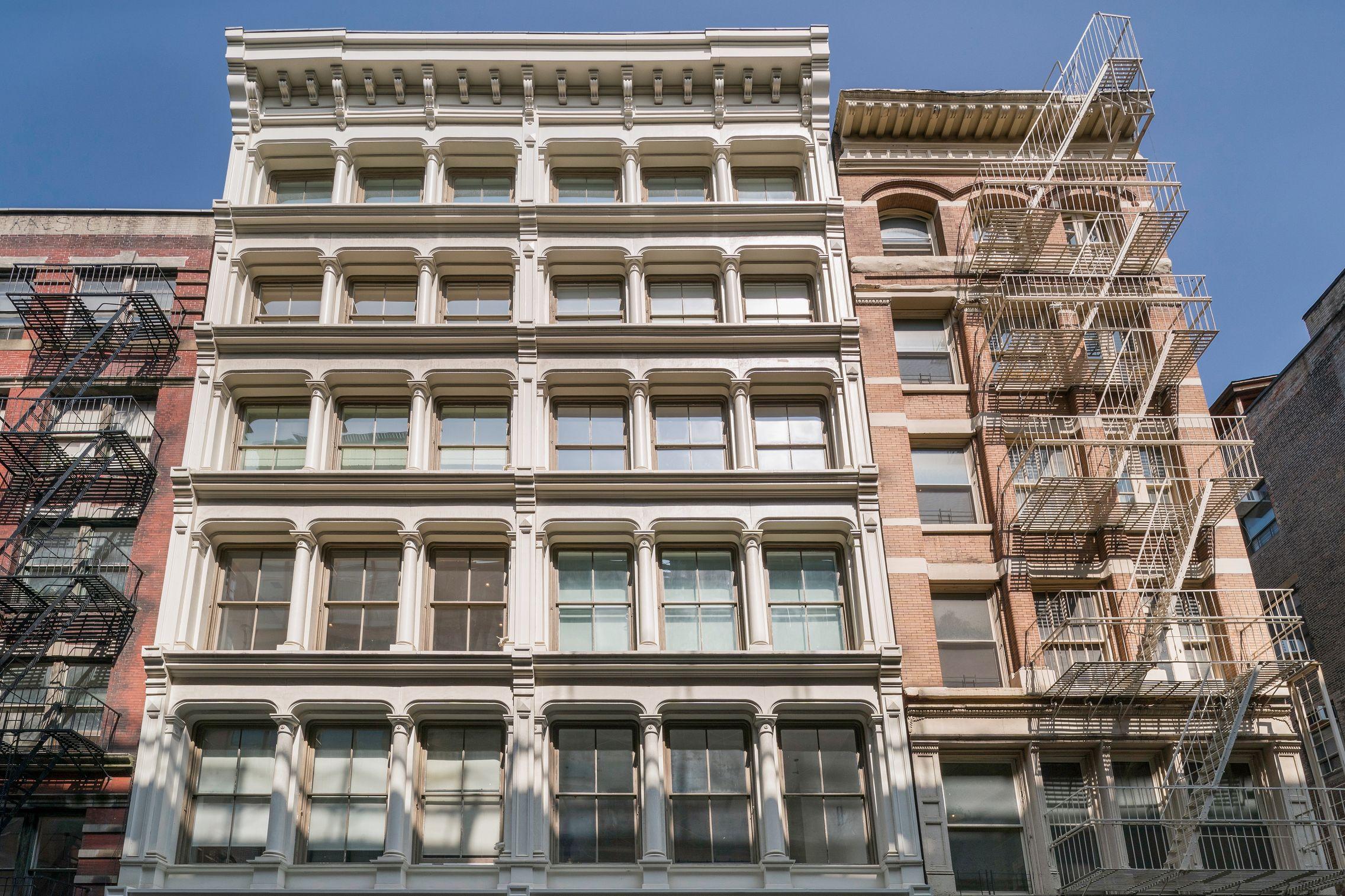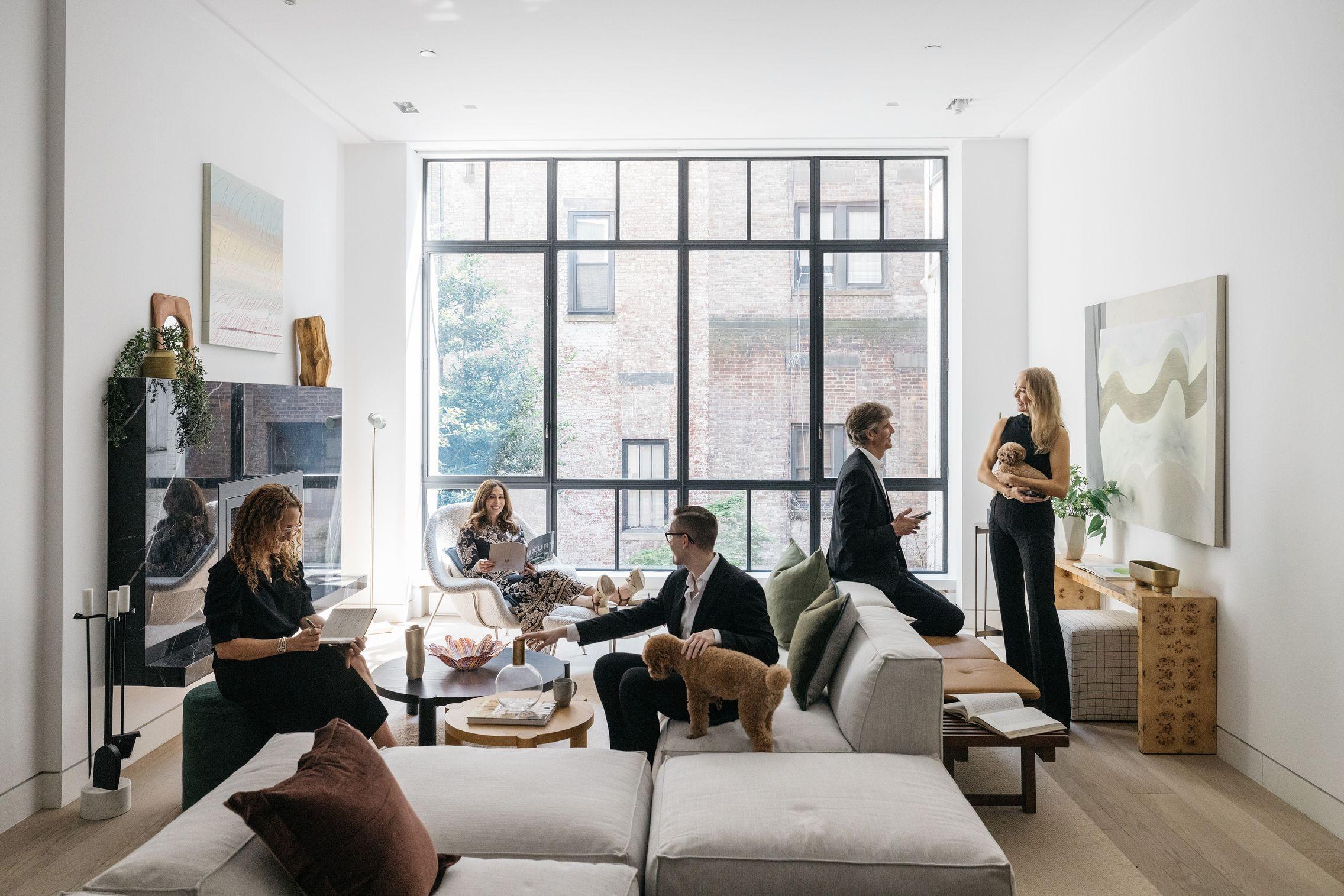








New York City is one of the most diverse and competitive real estate markets in the world, and we understand that making the decision to buy a home here can be a particularly overwhelming experience From mastering the difference between condos and co-ops, to planning for closing costs, to approaching the board approval process, there’s a lot to learn
That’s why we ’ ve created this buyer’s guide to set you on the right course to owning a New York City home of your own

Finding your dream home is an exciting process that can take several months to navigate and find the perfect match Once you have found a home and your offer is accepted the typical timeframe for the closing process is approximately 2–4 months
Based on our conversations about your search criteria we will set up a custom Compass Collection for you! Imagine a ‘Pinterest’ board, but of homes for you to consider Its a streamlined way for us to add and organize the homes you want to see get instant updates from each other, and make decisions together
TYPICAL TIME FRAME: 3–7 DAYS
Before beginning your search your first step is to get pre-approved for a mortgage loan (unless you will be paying in cash for the full price of your home) We are able to connect you with a preferred lender and/or mortgage broker Based on your income and credit history the lender/ mortgage broker will determine how much the bank will lend you, which will help you determine the price range for your search
TYPICAL TIME FRAME: A FEW DAYS–3 MONTHS
Attend viewings and open houses to consider your ideal home’s location and amenities The Heather Domi Team will take care of scheduling all appointments
TYPICAL TIME FRAME: 3 DAYS–2 WEEKS
Reach an agreement with the seller on price and terms Once you have seen a home you like you can put in an “offer” which is a non-binding agreement to pay a certain price for the home If your offer is lower than the list price, the seller will likely return with a “counter offer” which you can choose to accept reject or make another offer The Heather Domi Team will provide guidance and advice on pricing throughout
TYPICAL TIME FRAME: 1 WEEK
Your attorney will review the contract of sale building financials and board minutes with you Your attorney’s job is vital to protecting your interests, and they have an incredible amount of paperwork to review on your behalf Therefore you want to select an attorney who specializes in New York City co-op and condo sales
Once the due diligence is complete, you will sign the contract along with a 10% deposit Once the deposit is received, the seller executes the contract A contract is binding only after both parties have signed it




TYPICAL TIME FRAME: 3–6 WEEKS
You can only apply for a mortgage after you have a fully executed contract The lender will work on all of the banking needs with you and arrange for an appraisal If you are financing the board requires a commitment letter from the lender These letters are generally the last items to complete the co-op or condo application
TYPICAL TIME FRAME: 3–4 WEEKS
Co-ops and Condos are run by a board of directors, who will require a board package in order for you to purchase an apartment A board package generally consists of financial documents including tax returns, bank statements, mortgage commitment from your bank, employment history and letters of reference The Heather Domi Team will work with you to put this together in the best manner possible
TYPICAL TIME FRAME: 1–4 WEEKS
After the Heather Domi Team completes the Board Package with you, they will submit your package to the buildings managing agent The managing agent will review your package to ensure it is complete Your package will then be forwarded to the Board of Directors After the Board reviews your package, they will decide if they would like to meet you for an interview An interview is only required when purchasing in a co-op When purchasing in a condominium an interview is not required
TYPICAL TIME FRAME: 30 MINUTES–1 HOUR
If invited for an interview, you typically meet with several co-op board members at the building around a timeline set forth by the board Postcovid, many boards are still conducting interviews virtually The Heather Domi Team will prepare you for your interview
TYPICAL TIME FRAME: 1 DAY–1 WEEK AFTER THE BOARD INTERVIEW
The managing agent will inform your broker whether or not you ve been approved by the board
Ensure effective communication with your lender regarding the clearance to close and take proactive measures to secure any remaining documents required for a smooth and timely closing process
APPRAISAL
Assessment of the property’s market value typically done for the purpose of obtaining a mortgage
COMMON
Monthly maintenance fee paid by condo owners
Property taxes are not included in the common charge
CONTRACT DEPOSIT
A percentage of the agreed-upon purchase price paid by the buyer at the time of signing the contract
CO-OP
Owner of a co-op unit since what they are actually purchasing are shares of stock in the co-op corporation
DEBT-TO-INCOME RATIO
The percentage of an individual’s monthly gross income relative to the amount of debt owed
ESCROW DEPOSIT
Deposit of funds to be transferred upon completion of the deal
FINANCIAL STATEMENT
A formal record of all your financial assets debts and liabilities
FLIP TAX
A tax levied by a co-op and paid by the seller when a sale is made They are designed to generate funds for the co-op ’ s cash reserve
A background check on the property and the seller to ensure there are no outstanding debts or claims upon the property
MAINTENANCE FEE
Fees paid by co-op shareholders that contribute to building operations
A mortgage banker lends you money directly handling the whole mortgage process in-house
MORTGAGE BROKER
A mortgage broker doesn't lend money but helps you find the best loan by connecting you with various lenders
The amount of cash the buyer must have on hand after deducting the down-payment and closing costs
PRE-APPROVED
Advanced approval from a bank or other lending institution for a home mortgage
TYPICAL TIME FRAME: 1–2 WEEKS AFTER THE BOARD APPROVAL
The attorneys will coordinate a closing date Schedule a
TYPICAL TIME FRAME: IDEAL
OR
Potential buyers provide an overall financial picture and mortgage brokers provide an estimate of what level of loan you will likely be pre-approved for
A fee paid to the local government to officially report a sale of a home; usually paid by the buyer
SPONSOR
The entity responsible for developing a new building or converting an existing rental building to a condo or co-op Key
Newly constructed buildings sometimes receive abatements so that owners do not have to pay taxes on their units for a specified amount of time

INVESTOR FRIENDLY
Typically cheaper
75% of NYCs housing built before 1980s
Characterized as predominately owner-occupied, provides greater level of control and stability
Moderately to highly stringent, involves a thorough evaluation and a personal interview
Indirect ownership through a stock certificate and lease structure
Maintenance fees include: the building’s real estate taxes, building maintenance, amenities, gas, water, and building mortgage (if applicable) Real estate taxes are paid separately
Tax deductions on owners percentage of the building’s mortgage interest and real estate taxes
Limited, if allowed at all
New buyer must be approved by the board A 1-3% flip tax required to be paid by the seller or buyer
Typically more expensive
25% of NYC’s housing built after 1980s

Typically a blend of both owners and renters It tends to be more relaxed if an owner chooses to rent their home
Less rigorous no interview Quicker to approve
Direct ownership of real property through a fee simple transaction
Common charges include: building maintenance amenities gas water and common area expenses Real estate taxes are paid separately
Some tax abatement programs are still in place that can provide benefits for up to 10-20 years
Less restricted Generally, a one (1) year minimum lease is required
New buyer rarely denied Condo would need to exercise First Right of Refusal
*Thoughout New York City and most condos a strict anti-Airbnb rule has been instituted
* Condo Co-Op Tax Abatement
Board Package Processing Fee
Move-in Deposit
Move-in Fee
Common Charges Adjustment
Credit Check Fee
Maintenance Adjustment
Recognition Agreement Fee $500 - $2 000
- $2 000 $500 - $1 000 (refundable) $500 - $1 500 (refundable) $250 - $1,000


Bank Application, credit check, etc
Bank Attorney
Appraisal
Tax Escrow
Mortgage Orientation Fee / Rate
UCC1 Filing
Mortgage Recording Tax
Recording Fees
Title Insurance Municipal Searches Real Estate Tax Adjustment Mansion Tax




